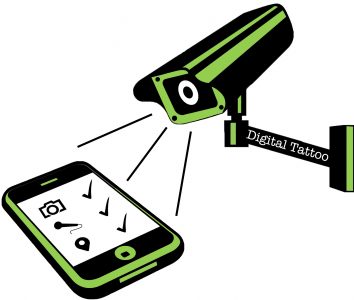By bryan short on December 12, 2016 | Tagged with Digital identity, Digital Identity Digest
Canadian precedent emerging for teen sexting A 16-year-old boy from Newfoundland received a sentence of 18-month probation for sharing naked photos of his 15-year-old girlfriend. He pleaded guilty to possession of child pornography and avoided the more serious charge of distribution. In Canada, he could have faced the same charge even if he had not shared the images. It […]
Read More | 2 Comments
By bryan short on November 12, 2016 | Tagged with
The future of privacy might be analog technology New smart home devices, which are internet connected devices that are part of the growing Internet of Things, like a WiFi connected teapot, present quite a few privacy concerns. Such devices were used in late October to temporarily bring down the internet in a coordinated attack. They’re relatively unsecure […]
Read More | No Comments
By bryan short on October 23, 2016 | Tagged with Connect, Connect series, learning analytics, privacy
The Data After a long period of waiting, and a short period of complaining, I’ve received my personal data from UBC’s Learning Management System (LMS), Blackboard Connect. I’m impressed with, and unsettled by, the amount of data that I’ve been given. It’s from every course at UBC that I’ve ever been enrolled in, including those […]
Read More | 7 Comments
By bryan short on October 3, 2016 | Tagged with Connect, Connect series, Digital identity, learning analytics, privacy, Protect
The History It’s been over 60 working days since I first made my request to UBC for access to my personal data that was collected and stored through their Learning Management System (LMS), Blackboard Connect. Under the Freedom of Information and Protection of Privacy Act (FIPPA), public institutions are advised to comply with these requests within 30 business days, […]
Read More | No Comments
By bryan short on September 29, 2016 | Tagged with Crap Detection, Digital Identity Digest, digital tattoo, Network Smarts, Online Safety, privacy, Protect
US citizens can register to vote within Snapchat application In an appeal to its young audience, the popular and ephemeral video sharing application, Snapchat, is encouraging young people to vote by allowing them to register within the application. The campaign is in partnership with Democracy Works’ TurboVote, and its advertisements will automatically be displayed in Snapchat Stories for […]
Read More | No Comments
By bryan short on September 22, 2016 | Tagged with Digital literacy, Learn, Participation, success
I found myself standing against the back wall of a huge lecture theatre in the Earth and Ocean Sciences Building on UBC’s Vancouver campus. The auditorium’s seats were filled with hundreds of teacher candidates—an audience that I would have imagined to be quite aware of issues of concentration and attention. Yet, the lecture theatre was filled […]
Read More | No Comments
By bryan short on August 28, 2016 | Tagged with Digital identity, Digital Identity Digest, digital tattoo, privacy
New Facebook application for teens presents privacy concerns Facebook released a new video sharing application called Lifestage this week that is intended for users under the age of 21. The social media company has been losing market share to ephemeral applications like Snapchat, and has been looking for ways to engage the young users who favour its […]
Read More | No Comments
By bryan short on August 26, 2016 | Tagged with Connect, Connect series, Digital identity, learning analytics
The 30 business days that FIPPA allows for a public body to provide personal information expired on August 19th, 2016. I reached out to the University Office of Counsel and asked them when I was going to receive my data, and was informed that because of the “large volume of responsive records” that they’re dealing […]
Read More | 6 Comments
By bryan short on August 21, 2016 | Tagged with Digital Identity Digest
Hackers targeting medical records For most of us, our largest concern relating to digital security is exposing our banking information to cybercriminals. Whether it’s our credit card numbers our private chequing or savings account information, we’re willing to endure safeguards like chip and pin protocols and highly secretive passwords. However, and perhaps because of all these security […]
Read More | No Comments









